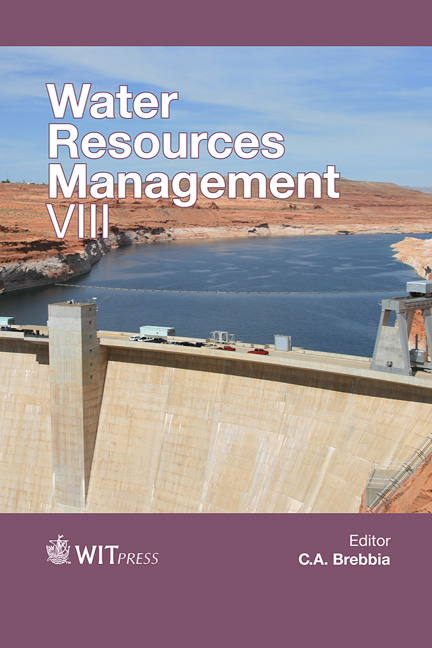Public Acceptance Of The Use Of Reclaimed Water For The Irrigation Of Vineyards: A Case Study In Guadalupe Valley, Mexico
Price
Free (open access)
Transaction
Volume
196
Pages
11
Page Range
221 - 231
Published
2015
Size
1,575 kb
Paper DOI
10.2495/WRM150191
Copyright
WIT Press
Author(s)
L. G. Mendoza-Espinosa, D. Acosta-Zamorano, N. Calderón de la Barca, A. Cabello-Pasini
Abstract
For recent decades, and due to water shortages and droughts, reclaimed water has been more frequently used for the irrigation of crops. The Guadalupe Valley, located in the north-western region of Mexico, is a region that produces approximately 90% of the wine in the country. The region is semiarid and in need of new sources of water for public and agricultural use. Reclaimed urban wastewater has been identified as a possible source of water for vineyard irrigation. Therefore, a survey was conducted to identify the degree of public acceptance of wine consumers and winemakers into using reclaimed water for irrigation. It was found that 80% of the public were in favor of consuming wine produced with vines irrigated with reclaimed water, despite the fact that the majority were not aware that in other places of the world and the country, reclaimed water is used for irrigation. On the other hand, 80% of the grape growers and winemakers that were interviewed recognized the potential of using reclaimed water for the irrigation of their vineyards yet called for the adequate operation of the wastewater treatment plants and proper supervision by a trustworthy third-party. The rest of the grape producers did not favor the use of wastewater due to concerns of the possible high costs of reclaimed water (although no information of these costs were provided) and the potential rejection of wine consumers, especially by consumers outside Mexico.
Keywords
reclaimed water, agriculture irrigation, wine production, water shortage





